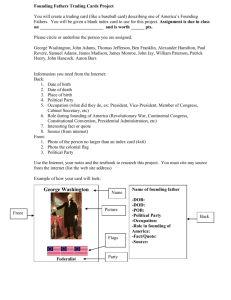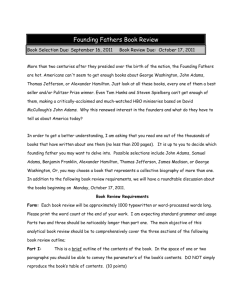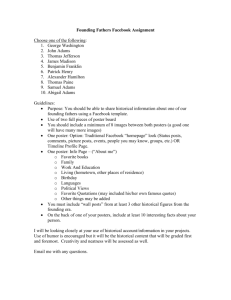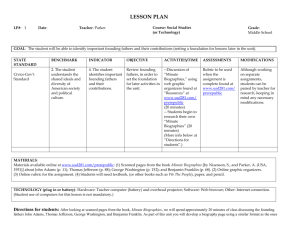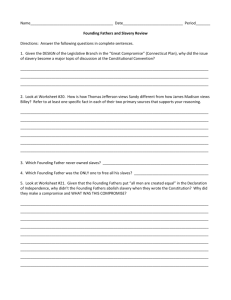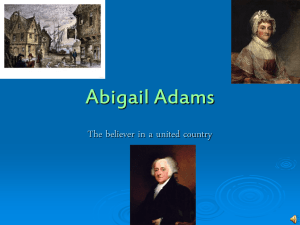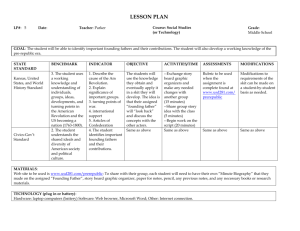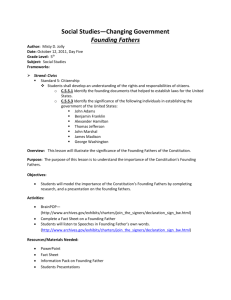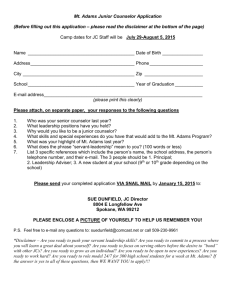Founding Fathers - Ms. Xiques` Classroom
advertisement
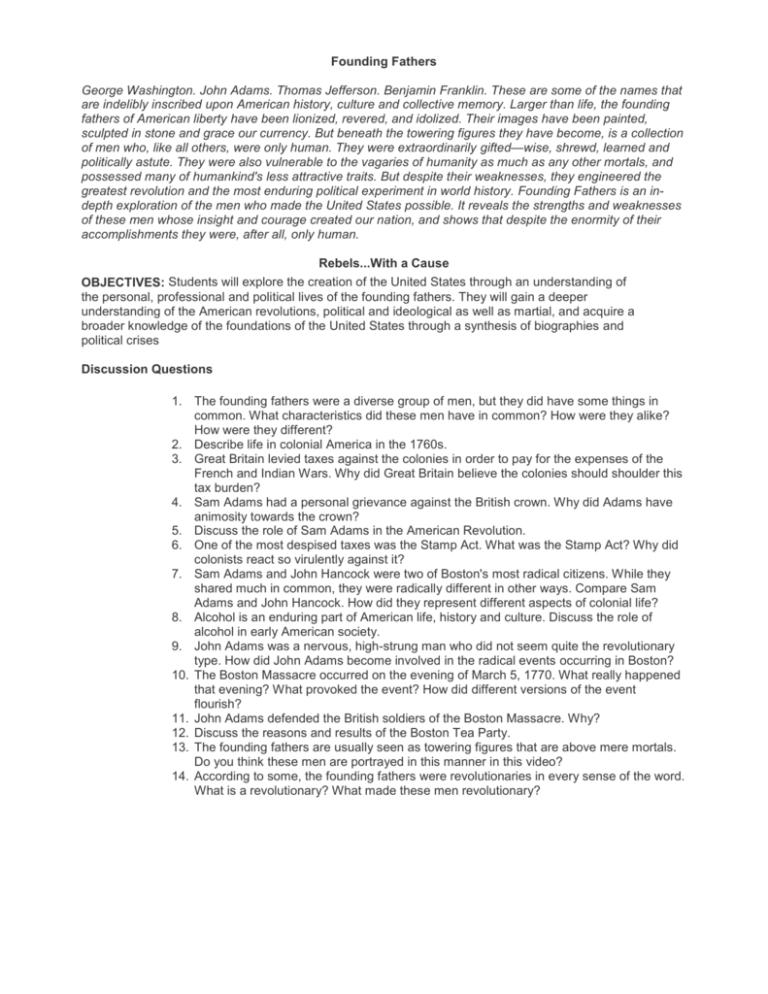
Founding Fathers George Washington. John Adams. Thomas Jefferson. Benjamin Franklin. These are some of the names that are indelibly inscribed upon American history, culture and collective memory. Larger than life, the founding fathers of American liberty have been lionized, revered, and idolized. Their images have been painted, sculpted in stone and grace our currency. But beneath the towering figures they have become, is a collection of men who, like all others, were only human. They were extraordinarily gifted—wise, shrewd, learned and politically astute. They were also vulnerable to the vagaries of humanity as much as any other mortals, and possessed many of humankind's less attractive traits. But despite their weaknesses, they engineered the greatest revolution and the most enduring political experiment in world history. Founding Fathers is an indepth exploration of the men who made the United States possible. It reveals the strengths and weaknesses of these men whose insight and courage created our nation, and shows that despite the enormity of their accomplishments they were, after all, only human. Rebels...With a Cause OBJECTIVES: Students will explore the creation of the United States through an understanding of the personal, professional and political lives of the founding fathers. They will gain a deeper understanding of the American revolutions, political and ideological as well as martial, and acquire a broader knowledge of the foundations of the United States through a synthesis of biographies and political crises Discussion Questions 1. The founding fathers were a diverse group of men, but they did have some things in common. What characteristics did these men have in common? How were they alike? How were they different? 2. Describe life in colonial America in the 1760s. 3. Great Britain levied taxes against the colonies in order to pay for the expenses of the French and Indian Wars. Why did Great Britain believe the colonies should shoulder this tax burden? 4. Sam Adams had a personal grievance against the British crown. Why did Adams have animosity towards the crown? 5. Discuss the role of Sam Adams in the American Revolution. 6. One of the most despised taxes was the Stamp Act. What was the Stamp Act? Why did colonists react so virulently against it? 7. Sam Adams and John Hancock were two of Boston's most radical citizens. While they shared much in common, they were radically different in other ways. Compare Sam Adams and John Hancock. How did they represent different aspects of colonial life? 8. Alcohol is an enduring part of American life, history and culture. Discuss the role of alcohol in early American society. 9. John Adams was a nervous, high-strung man who did not seem quite the revolutionary type. How did John Adams become involved in the radical events occurring in Boston? 10. The Boston Massacre occurred on the evening of March 5, 1770. What really happened that evening? What provoked the event? How did different versions of the event flourish? 11. John Adams defended the British soldiers of the Boston Massacre. Why? 12. Discuss the reasons and results of the Boston Tea Party. 13. The founding fathers are usually seen as towering figures that are above mere mortals. Do you think these men are portrayed in this manner in this video? 14. According to some, the founding fathers were revolutionaries in every sense of the word. What is a revolutionary? What made these men revolutionary?
